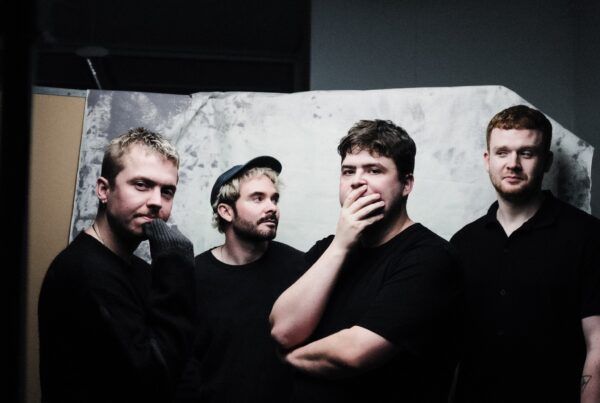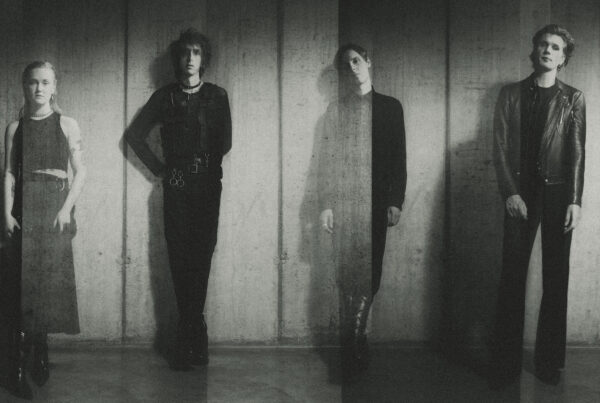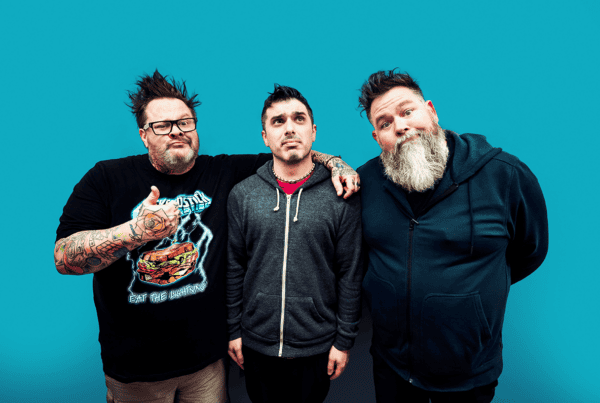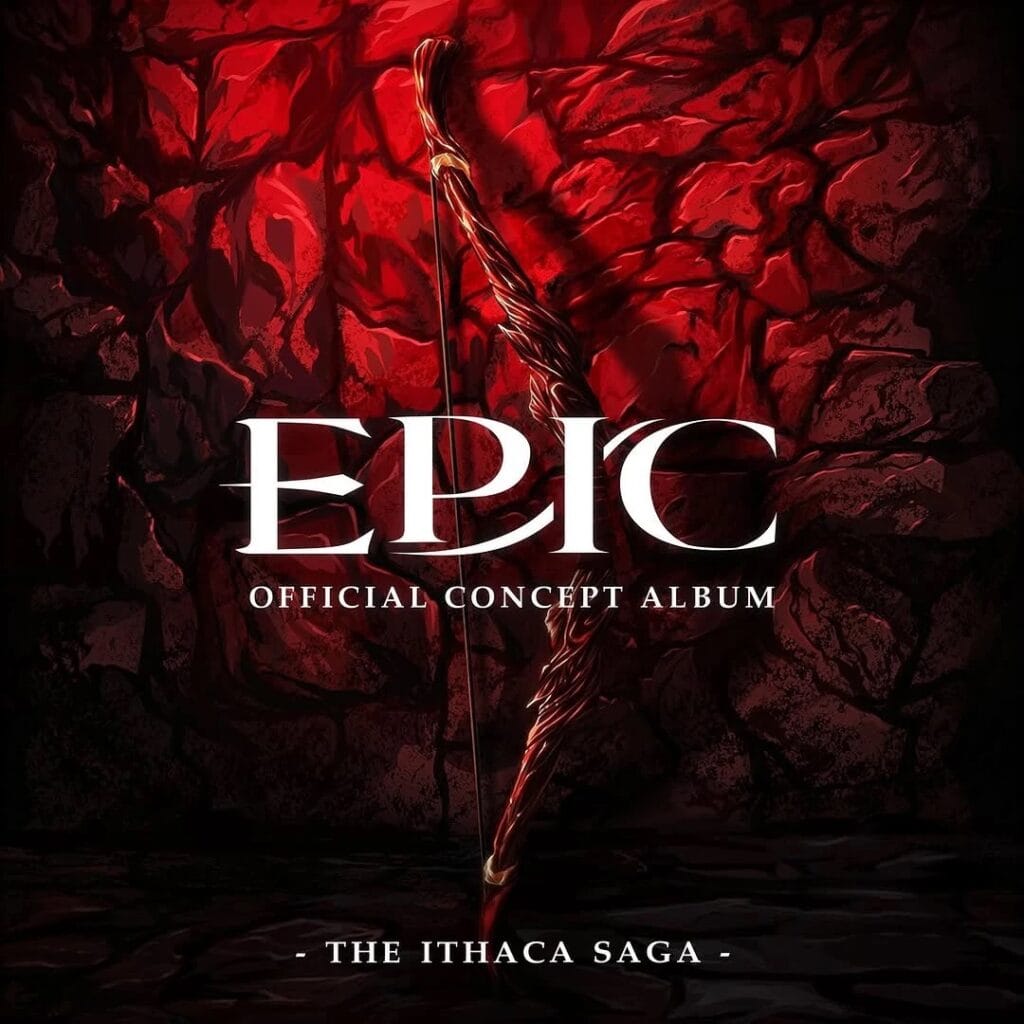With almost a decade of experience under his belt as a session drummer and permanent fixture in the dynamic rock collective Knock-Out Kaine, Danny Krash has more than a few pearls of wisdom to offer, and tales to tell.
At five years old, Krash watched Queen playing at Wembley on his TV. “From an early age I wanted to be Freddie Mercury or Roger Taylor.” He said. “I remember idolising those two. After that, my mum and dad bought me my first drum kit, and the rest is history. There was a natural connection between me and the kit – it always felt right.”
As he became a teenager, Krash began to seek out chances to play in bands. “My younger brother is a really prolific guitarist. He was one of those who would pick up an acoustic guitar, and before you know it, everywhere he went he found some success. It was my job to keep up with him, playing instrumental prog-rock and all that kind of stuff. We started playing gigs together – only school gigs –and then at fourteen I started to get paid for playing for blues musicians in Sheffield. I was skipping school so I could sit and play my drums all day. I ended up playing in cover bands, doing local gigs and all that kind of stuff. When other kids were hanging out on street corners I was just gigging and trying to earn a living.”
Krash’s age initially capped his success initially: “Being only fourteen, it was quite difficult to get accepted into bands who would take me seriously.”– until he was introduced to Dean Foxx, the lead vocalist in Knock-Out Kaine. “His drummer had literally just left,” he said, “and with that Dean rang me up and said ‘I have a proposition for you. Any chance you want to join Knock-Out Kaine?’. Of course, I said yes. I ended up travelling a lot with those guys and made quite a network.”
Realising the importance in being a versatile performer, Krash didn’t limit himself to rock music, instead branching out into the jazz circuit – a seemingly unlikely, but necessary move. “I didn’t really get onto the jazz circuit until just recently. Obviously, when you start off on the rock circuit, it’s incredibly difficult to diversify. I’ve had to work hard and really push the fact that I’m not limited to rock drumming – I can do anything. I’ve only just started to break the mould, getting onto the Soho jazz circuit. While I was modelling, I was going to New York a couple of times. I started playing a couple of gigs over there, and I was really thrown into the deep end with that. I rolled up to this jazzbar – not expecting to play, just expecting to see some killer musicians – and in the early hours of the morning it all just turned into this massive jam session. I got asked to come back the following day to stand in and play a couple of numbers for the jazz artists over there. It really opened my eyes. I realised ‘That’s what I want to do; that’s where I want to be.’”
The physical and mental strain that touring can exert on a musician is something Krash has madeno secret about. “I’ve been through many spates of really bad depression whileI’ve been on tour.” He confesses. “Some of it is my own doing, some of it: I’ve been unlucky. I’ve had some really big breaks, and then suddenly I’ve had a lotof massive setbacks in my life. Going on tour, something that I saw initially as a major success, ended up becoming a pain. The night before a tour, I’d behaving panic attacks, getting drunk and taking anti-depressants like they were going out of fashion. That was my coping mechanism.” This didn’t go away when the tour began: “One of the biggest mistakes I used to make was going backstage, having a breakdown, and scoring drugs off the audience. That was a big no-no.” In spite of his mental health being an obstacle, Krash hasn’t lost sight of his passion: “But I’ve felt really comfortable with the tour I’ve just been on. It reminded me that this is what I want to be doing.”
To keep his head above water when he was at his lowest, Krash relied on the support from the people around him: “I tend to surround myself when I’m having a bad day. Whether it’s going and seeing my family, meeting my friends at the pub or just being with my boyfriend, I’ve got a really good network behind me who I can go to with anything. It’s good to have people to talk to who don’t make you feel like an attention-seeker, or crazy. Opening up to people is the key. People aren’t as judgemental as you think, and it’s good that people have being more open about mental issues such as depression. My bandmates are like one big family to me.To be honest, it’s people who drive me. It’s in my nature, and probably one of the reasons why I love performing so much.”
Many people wouldn’t hesitate to deem Danny Krash as successful. After touring across Europe, beingadvocated by tastemakers including Kerrang! and Guns N Roses’ Steven Adler, including playing to four thousand people at Download Festival, does consider himself to have found success? “Success, to me, is being able to keep a roof over my head, really – which is something I’m still struggling with and always will. I’ve managed toget away from the 9 to 5 job, which I think we all have to go through every nowand again. When the money isn’t coming in, I’ve done most jobs under the sun to make ends meet. I’ve got to that point where I’m just able to scrape a living just doing what I want.”
Danny Krash is based in Lincoln, a small city in North Lincolnshire. How has living remotely from musical epicentres affected his work as a performer? “Where I am now is literally just travelling. A lot of my work comes from Leeds, and I often have to go and work in London. Lincoln is only a small town. It’s got a really great pool of musicians but they all travel. My advice is to not wear your local scene out. Eventually, the audiences do start to dwindle. The only thing you can do is go out there and do as much as you can, and build up a network that extends beyond your immediate 40-mile radius. Try and build a fanbase everywhere you go. You never know where you might end up.”
So, what’s on the horizon for Danny Krash in 2019? “I spend a lot of time writing my own music, but I’ve never quite summed up the confidence to put it out there and share it. I would like to do something with my own work, since usually the role of a drummer is to play other people’s songs. I’d love to do a one-off album. I write a lot of funk stuff, and it’s one thing I haven’t really explored. Drummers naturally gravitate towards funk, what with it being such a drum-heavy, groove-orientated genre. I’ve never actually played in a proper funk setting, so that will probably be my next thing.”
Whether you be performing music or working in the industry, this is what Danny Krash wants you to take away with you: “Stay creative, positive and healthy. It’s very easy to reach for the bottle, but all you get from that is false happiness. Keep your mind firmly on track of what you want to be doing. I still get my down days, but I try to push myself and focus on what I enjoy. Try not to get too disheartened when an opportunity may seem brilliant, but isn’t as it seems. With every achievement, congratulate yourself, but also use it as an opportunity to learn and grow. At the end of the day, you’ve just got to persevere. If you truly believe that what you’re doing is worth it, just keep plugging away. Things will happen for you.”






